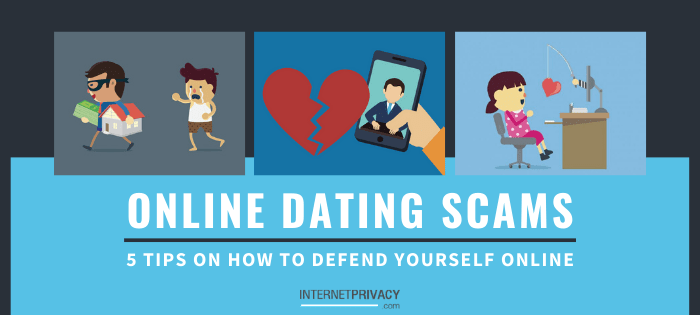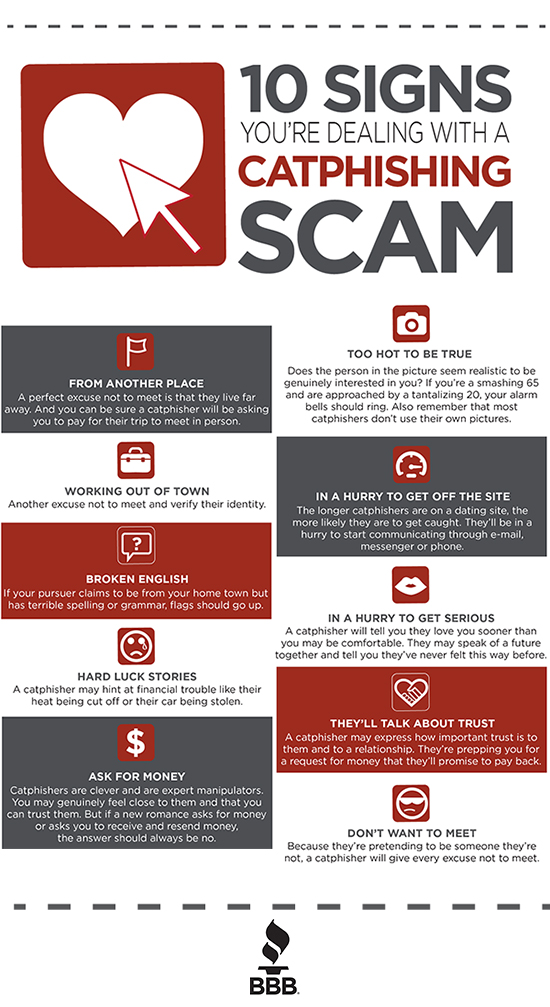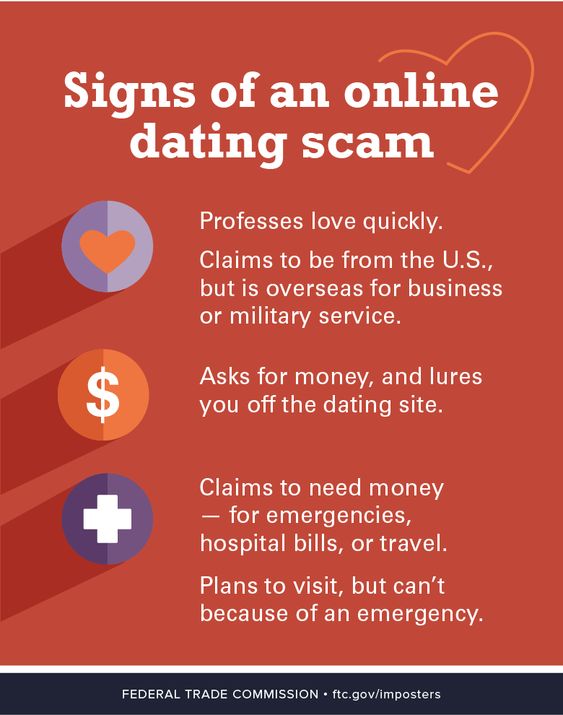5 Tips On How to Spot And Defend Yourself From Online Dating Scams

Online dating scams happen each and every day on dating apps such as Tinder, Bumble, Hinge, PlentyofFish — and the list goes on and on. And since most online daters may be vulnerable to possible romance scammers, in this article, we will divulge the 2 most popular schemes and how to avoid online dating scams today.
Although primarily for online dating, thanks to the emergence of social media these tips became interchangeable and apply to both. So, whether you are testing the waters with online dating, or are new to social media, you will want to know the following information to safeguard your online reputation.
To help put online dating scams into perspective, here is an example of a previous client of ours. Let’s refer to him as John.
John’s Real Life Online Dating Scam
John is a retiree in Florida who has generous savings from the oil industry and nothing but time to kill. John has been single for several years, after unfortunately losing his wife.
So this middle-aged happy-go-lucky individual just made the transition from his old flip phone to the new iPhone XR. After years alone and a new outlook on life with his brand new smartphone, he decides to download Tinder — THE dating application, where you simply swipe right if you are interested in meeting.
Within minutes of creating his profile, he matches with a younger woman. She instantly messages him. After a few hours of talking, the woman informs John that her family needs dire assistance. Her child is severely ill, but she cannot make a payment due to unforeseen events. So she asks John (after learning about his fortunes) if he can help.
Now John, being new to the internet and naive regarding online dating scams and how others operate, took this request as a sincere one.
Shortly after handing over his bank account information, John never heard from the woman again. The result? The person drained his 401(k) retirement accounts, which totaled more than $100,000. To make matters worse, John was informed by the IRS to pay taxes on his own 401k.
This goes to show that no matter how honest and truthful you are with others, the same treatment may sometimes not be reciprocated. This applies, especially, to older individuals and newbie internet users, who should be well-informed of all potential online threats.
Types Of Online Dating Scams
The internet is a double-edged sword. It is here to assist you with finding answers, and yet, the same goes for those looking for your personal/private data.
Listed below are two of the highest-profile romance scams that have directly influenced online dating participants:
Money Demands
In reality, they’re probably the very first thing that crosses people’s heads when they think of the pitfalls of online dating. Here we see users asking others for money, just like in our example above. This should be common knowledge. However, we frequently see this issue amongst our clientele.
Coercion
Some sufferers have reported falling for extortion, especially once the talk, shared photos, or webcam chats turn intimate.
Many of these scams are rampant on social media platforms, not only dating sites. That means you could become a victim even when you’re not an active member of the “online dating scene.”

5 Ways To Defend Against Yourself Online Dating Scams
So just how do you search for online romance while still protecting yourself from dating scams? Start by following these simple guidelines:
1. Keep The Conversation Online
Do not take the dialogue to some platform off of the dating website. At least not until you have adequate reasons to trust this individual. The dating site you use must have safeguards in place to delete accounts when users are caught violating their terms.
A tactic many individuals use once they feel comfortable is that, instead of exchanging phone numbers, you add each other on another social platform. These can be Snapchat, Instagram, Tik Tok, etc.
In this case, you are not exposing any personal information besides a social media handle (that can always be changed). By using social sites such as Instagram or SnapChat you can block, remove, or report users any time. This means all the safeguarding and protective measures are in place. But if you exchange phone numbers, email, or instant messaging contacts, you are exposing personal data.
2. Be Aware Of Common Tricks
Be mindful of some of the most frequent online dating scam tactics. For example, the scammer may assert that they have an arduous job to explain why they can not communicate with you regularly. In reality, the scammer is actually covering up the need to balance out the time they’re giving to other victims. Nearly all requests can seem sincere, so you must remain vigilant.
Users may say they are on vacation, deployed, or give other reasons as to why they cannot contact you regularly.

3. Never Discuss Money
Never send money to anyone you meet online. It doesn’t matter for how long you have been chatting. If the other party needs the cash and has no other means of getting it, then this might be a sign of somebody you shouldn’t be associating with.
4. Fast-Forwarding: Beware!
Be cautious of flattery, pet names, and guarantees of lifelong love that come far too soon in a relationship.
Remember, in the offline world you would likely run away from somebody who starts talking about marriage by the third date, especially if you never met in person. So there is more reason to be wary of someone who’s too quick to latch onto you while dating online.
5. Always Remember To Think
Trust the people around you. If a friend or family member is worried about you, that doesn’t mean that you have to drop the new love interest. But it does signal that you may be a little too blinded by affection to find out what so many other people are seeing.
However, before you let somebody steal your heart online, be sure they are not really a romance scammer that is after your bank accounts or your own identity.
Learn How To Defend Yourself Against Online Dating Scams. Protect Yourself Today!
Internet Privacy can show you how. Speak with an internet privacy specialist today at 866-741-7150.





